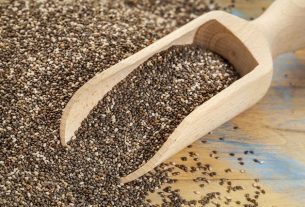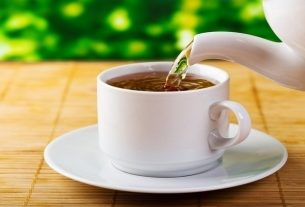Valerian is a medicinal plant of the species Valeriana officinalisalso known as apothecary valerian or wild valerian, rich in valerenic and isovaleric acids with calming, sedative and relaxing properties, being widely used to treat various health problems, especially insomnia, anxiety and stress.
The normally used part of valerian is the root, which can be used in the form of tea or capsules, and can be found in herbalists, health food stores, compounding pharmacies, markets and some street markets.
Valerian should always be used under the guidance of a doctor or other healthcare professional who has experience with the use of medicinal plants, as when consumed in excess it can cause headaches, stomach pains and even irritability, and is not recommended. for pregnant or breastfeeding women.

What is it for
Valerian has several medicinal properties that can be used to:
1. Combat insomnia
Valerian has sesquiterpene compounds in its composition, such as valerenic and isovaleric acids, which have calming and sedative properties with a tranquilizing action, which can be useful for combating insomnia and improving sleep quality.
Additionally, some studies show that taking valerian tea in combination with lemon balm can help alleviate restlessness and sleep disorders.
2. Reduce anxiety and stress
The valerenic and isovaleric acids present in valerian increase the activity of neurotransmitters in the brain, such as GABA, which acts by increasing the body’s feeling of relaxation and reducing symptoms of anxiety and stress such as agitation, nervousness, mental fatigue or difficulty concentrating.
Furthermore, some studies show that, by reducing anxiety, valerian can help in the treatment of diseases such as generalized anxiety disorder or obsessive compulsive disorder (OCD).
3. Relieve PMS symptoms
Due to its composition of sesquiterpene compounds such as valerenic and isovaleric acids, valerian helps to alleviate the symptoms of PMS by increasing the activity of the GABA neurotransmitter in the brain, which has a sedative and tranquilizing action, helping to improve moodiness, nervousness and anxiety, associated with PMS. Check out other ways to alleviate PMS symptoms.
4. Decrease menopause symptoms
Valerian can be used to reduce menopausal symptoms such as irritability or nervousness, as it has flavonoids in its composition such as hesperidin and linarin, which help combat hot flashes and excessive sweating, common during menopause.
Furthermore, valerian acts as a natural tranquilizer, regulating GABA levels in the brain, improving mood, increasing the feeling of well-being, improving sleep quality and reducing insomnia.
5. Relieve menstrual cramps
Valerian has in its composition acids with anti-spasmodic and anti-inflammatory properties, reducing the contraction of the uterus and inhibiting the production of inflammatory substances, mainly prostaglandins, and therefore helps to alleviate menstrual cramps.
6. Control attention deficit and hyperactivity
Some studies show that valerian, especially when used in combination with lemon balm, helps control attention deficit hyperactivity disorder (ADHD) in children, reducing symptoms of this disorder, such as impulsivity, agitation and aggression, and helping to improve attention, focus and task completion.
How to use
The normally used part of valerian is the root from which its active substances are extracted and can be consumed in the form of tea or capsules.
The main ways to use valerian are:
1. Valerian tea
To make valerian tea, it is recommended to use only its dried roots, as it is the part of the plant that contains all the beneficial properties for health.
Ingredients:
- 1 tablespoon of dry valerian root;
- 300 mL of boiling water.
Preparation mode:
Add the dried valerian root to the boiling water, cover and let it rest for 10 to 15 minutes. Then strain and drink 30 to 45 minutes before bed.
This tea should not be ingested by pregnant women or children under 3 years of age. You should also not exceed the consumption of 2 cups of tea per day, as it can have the opposite effect, causing agitation and insomnia.
2. Valerian capsules
Valerian capsules should be taken orally, without breaking, without chewing and taken with 1 glass of water.
Doses of valerian capsules vary according to the indication, and include:
- Insomnia: the recommended dose is 1 capsule of 450 mg, once a day, preferably 30 minutes before bedtime. The effects of the treatment are more effective after the third week of use;
- Stress and anxiety: the recommended dose is 1 capsule of 100 mg, 3 times a day, always accompanied by a meal;
- Menopause symptoms: the recommended dose is 1 capsule of 100mg, 3 times a day. The effects of the treatment become more effective after around 8 weeks of use;
- Menstrual cramps: the recommended dose is 1 capsule of 100mg, 3 times a day. The reduction in pain is noticed from the second menstrual cycle.
The duration of treatment with valerian should always be carried out in accordance with medical advice.
Possible side effects
Valerian is a safe plant for most adults, when consumed in recommended doses and for a short period of time. However, when consumed in excessive amounts, it can cause some side effects that include headache, stomach pain, irritability, agitation or insomnia.
During treatment with valerian, due to its sedative and tranquilizing effects, caution should be taken and avoid activities such as driving, using heavy machinery or carrying out dangerous activities. Furthermore, the use of alcohol can increase the effects of drowsiness and dizziness, which is why it is important to avoid drinking alcoholic beverages.
The use of valerian should be stopped 2 weeks before any surgery, as it has a sedative effect on the brain and can interfere with the action of anesthetics.
Who shouldn’t use
Valerian should not be used by children under 3 years of age, pregnant or breastfeeding women.
Furthermore, valerian should also not be used by people who use medication for anxiety, depression or who take painkillers such as codeine, morphine or tramadol, muscle relaxants such as cyclobenzaprine, or anticonvulsants such as phenobarbital or pentobarbital, for example.




